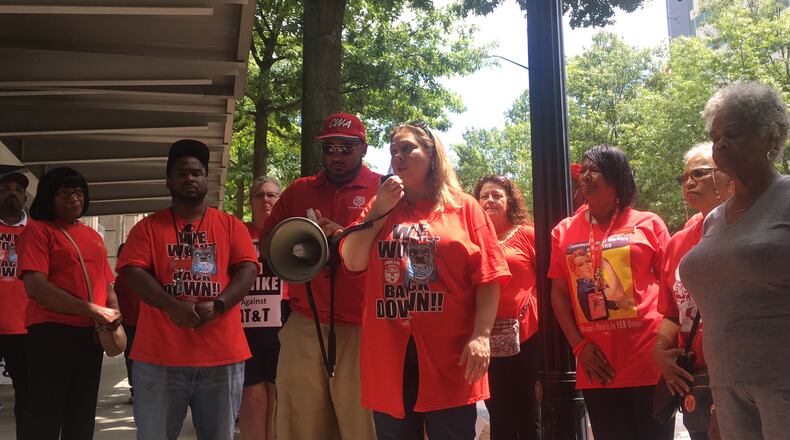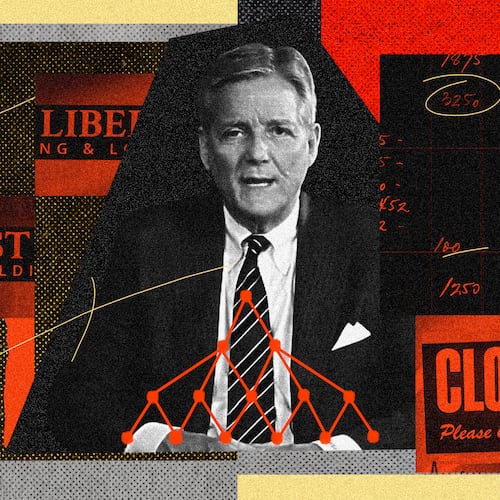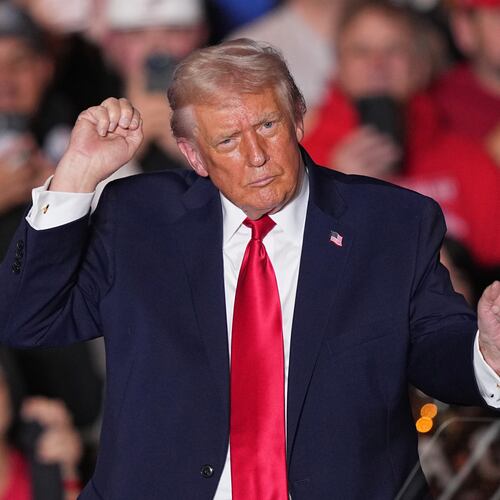The red-clad AT&T workers on strike this week outside the company’s Midtown tower were joined by a familiar face on the picket line: Sarah Riggs Amico, a Democrat who hours earlier had launched her campaign for the U.S. Senate.
That she picked a labor union strike to hold her first public appearance since entering the race was not just a symbolic move. It’s a reminder that despite the declining membership and clout of labor unions, they are still central to Democratic politics in Georgia.
And as this year’s Labor Day holiday approaches, Democratic contenders for offices up and down the ticket plan a string of events — barbecues, picnics, public statements — to express their love for the movement and maybe bolster their chances at an endorsement or two.
There’s a reason for the focus. Besides providing manpower for crucial get-out-the-vote efforts, dozens of national and local unions traditionally help bankroll Democratic campaigns and liberal efforts.
An Atlanta Journal-Constitution review of campaign finance records shows the extent of the network. The Democratic Party of Georgia received about $2.4 million during the 2018 election cycle from more than 60 union contributions.
They ranged from the enormous — a Washington-based teachers union gave more than a half-million dollars — to much smaller contributions. A United Auto Workers chapter in Tennessee chipped in $15,000.
Stacey Abrams, the runner-up in the 2018 gubernatorial election, boasted about her pro-union stances throughout the campaign. She assiduously courted labor and, after one testy closed-door meeting, her allies persuaded a prominent union to endorse her rather than sit out the primary.
Her pro-union stance helped pad her campaign coffers. She collected more than 80 contributions from unions in Georgia and across the nation, including groups representing steelworkers in Alabama, painters in Maryland and domestic workers in California. In all, that amounted to about $400,000 from unions, including $150,000 from those in Georgia.
‘Great impact’
The fight for union support might help explain the sharp reaction from Amico’s rivals to her first public event. Clarkston Mayor Ted Terry, one of the other two Democrats in the race to challenge U.S. Sen. David Perdue, pointedly noted that he’s the only union member in the contest.
He also took to social media, posting pictures of a 2015 picket line that he attended outside AT&T’s office in Atlanta and a Teamsters rally he attended in 2016.
"Remember that most politicians are full of (expletive)," he said on social media. "Don't just believe what they say, look at what they've done, and then you will know where they stand."
He and the other Democratic contenders for the seat — Amico and former Columbus Mayor Teresa Tomlinson — will attend a major union-organized Labor Day event in Atlanta on Monday, as well as a string of other weekend events.
At Amico’s campaign kickoff, she told picketers that she fought to preserve jobs for her car-hauling firm’s union members even as she filed for bankruptcy protection. She called herself a “committed capitalist, but a compassionate one.”
She was surrounded by veteran union members who have seen organized labor's decline over the decades. Federal data shows union membership has fallen from roughly 20% of the U.S. workforce in 1983 to about 10.5% last year.
Among them was Grace Chandler, a retired BellSouth worker who has witnessed the ebb of union clout. She predicted political powers would be surprised in 2020, though, as organized labor flexes its muscle in elections.
“Labor unions still matter in Georgia politics,” she said. “And we will make sure people know that next year.”
Rita Scott, the political director for the Communications Workers of America chapter that helped organize the AT&T strike, said local unions are now preparing their plans for 2020.
“When people ask whether I think unions are declining, I ask them whether people who are going to work are declining,” Scott said. “Look, union membership is falling. But we are going to have a great impact next year because our workers are suffering.”
Keep Reading
The Latest
Featured






